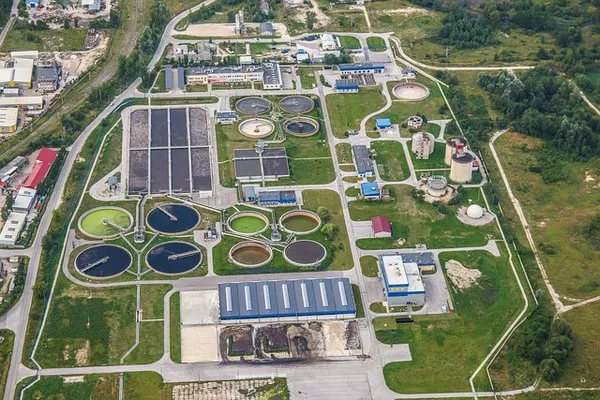In an era where water scarcity and environmental conservation are paramount concerns, the management of wastewater plays a pivotal role in ensuring the health and sustainability of our communities. Traditional centralized wastewater treatment systems, while effective in many cases, have their limitations, especially in remote or densely populated areas. Decentralized wastewater treatment has emerged as a practical and sustainable alternative to address these challenges. This article delves into the concept of decentralized wastewater treatment, its benefits, technologies, and its role in achieving a cleaner, more sustainable future.
What is Decentralized Wastewater Treatment?
Decentralized wastewater treatment, often abbreviated as DEWATS, is an approach that involves treating wastewater at or near its source of generation, rather than relying solely on large, centralized treatment plants. This decentralized approach offers several advantages, including increased efficiency, reduced infrastructure costs, and a reduced environmental footprint.
One of the core principles of DEWATS is to view wastewater not merely as a waste product but as a resource. By treating wastewater locally, it can be reclaimed and reused for various purposes, such as irrigation, industrial processes, or even for replenishing groundwater.
Key Advantages of Decentralized Wastewater Treatment
Cost-Effective: DEWATS systems are often more cost-effective than building and maintaining extensive centralized treatment facilities. They require less infrastructure and can be tailored to the specific needs of the community or facility.
Sustainability: Decentralized systems can incorporate sustainable practices such as water reuse and energy recovery, reducing their overall environmental impact.
Resilience: DEWATS systems are less susceptible to large-scale failures. If one unit experiences issues, it doesn’t disrupt the entire wastewater treatment process.
Scalability: These systems can be easily scaled up or down to accommodate changes in population or wastewater volume.
Improved Water Quality: DEWATS systems can often achieve higher water quality standards, making the treated water safer for reuse or discharge into the environment.
Technologies in Decentralized Wastewater Treatment
There are various technologies and approaches employed in decentralized wastewater treatment, each designed to suit specific needs and conditions. Some common technologies include:
Septic Systems: These are one of the most common forms of decentralized treatment, often used in rural and suburban areas. Septic tanks separate solids from wastewater, allowing the liquid effluent to percolate into the ground.
Constructed Wetlands: Natural or constructed wetlands can be used to treat wastewater. These systems rely on the natural processes of filtration and biological decomposition.
Aerobic Treatment Units (ATUs): ATUs use oxygen to break down organic matter and are effective at treating wastewater in areas with high water tables.
Membrane Bioreactors (MBRs): MBRs combine biological treatment with membrane filtration to produce high-quality effluent suitable for various purposes, including reuse.
Anaerobic Digesters: These systems use bacteria to break down organic matter in the absence of oxygen, producing biogas as a byproduct that can be used for energy.
Package Plants: These are pre-fabricated treatment units that can be deployed quickly and efficiently. They are often used in small communities or industrial settings.
Reuse Systems: In some cases, DEWATS systems are designed not just for treatment but also for water reuse, which can significantly reduce water demand.
Applications of Decentralized Wastewater Treatment
Decentralized wastewater treatment is a versatile approach that can be applied in various settings:
Rural Communities: DEWATS systems are a lifeline for rural areas where centralized infrastructure is often impractical due to low population density. They provide a cost-effective way to manage wastewater and protect local water resources.
Urban Areas: In densely populated urban areas, decentralized systems can supplement existing treatment plants, reduce the load on central facilities, and provide localized treatment solutions.
Industrial Facilities: Many industries generate wastewater that requires specialized treatment. Decentralized systems can be customized to meet these specific needs.
Remote Locations: Mines, oil rigs, and other remote facilities often require on-site wastewater treatment to minimize environmental impact and meet regulatory requirements.
Disaster Relief: DEWATS systems can be quickly deployed in disaster-stricken areas to provide emergency wastewater treatment and prevent the spread of waterborne diseases.
Challenges and Considerations
While decentralized wastewater treatment offers numerous benefits, it is not without its challenges and considerations:
Regulatory Compliance: Ensuring that DEWATS systems meet local and national regulations can be complex, requiring expertise in permitting and compliance.
Maintenance: Proper maintenance is essential for the long-term effectiveness of DEWATS systems. Neglected systems can become sources of pollution.
Community Acceptance: Some communities may resist DEWATS projects due to concerns about odor, noise, or perceived health risks.
Technical Expertise: Designing and implementing DEWATS systems require specialized knowledge in wastewater treatment and engineering.
Monitoring and Testing: Regular monitoring and testing are necessary to verify that DEWATS systems are operating effectively and meeting water quality standards.
Conclusion
Decentralized wastewater treatment is a sustainable and flexible approach to managing wastewater that has the potential to address a wide range of environmental and economic challenges. By treating wastewater at or near its source, DEWATS systems reduce costs, enhance water quality, and promote resource recovery. As communities and industries seek more sustainable solutions, decentralized wastewater treatment will continue to play a crucial role in safeguarding our water resources and protecting the environment.

